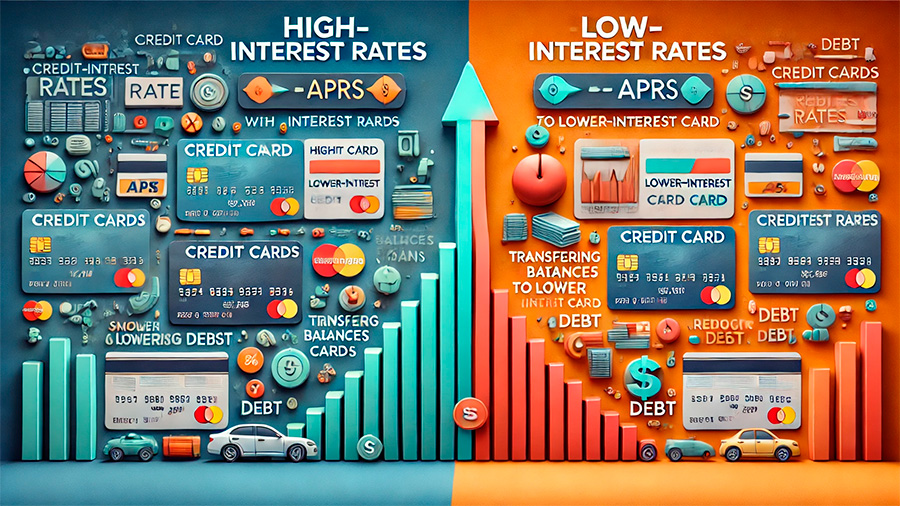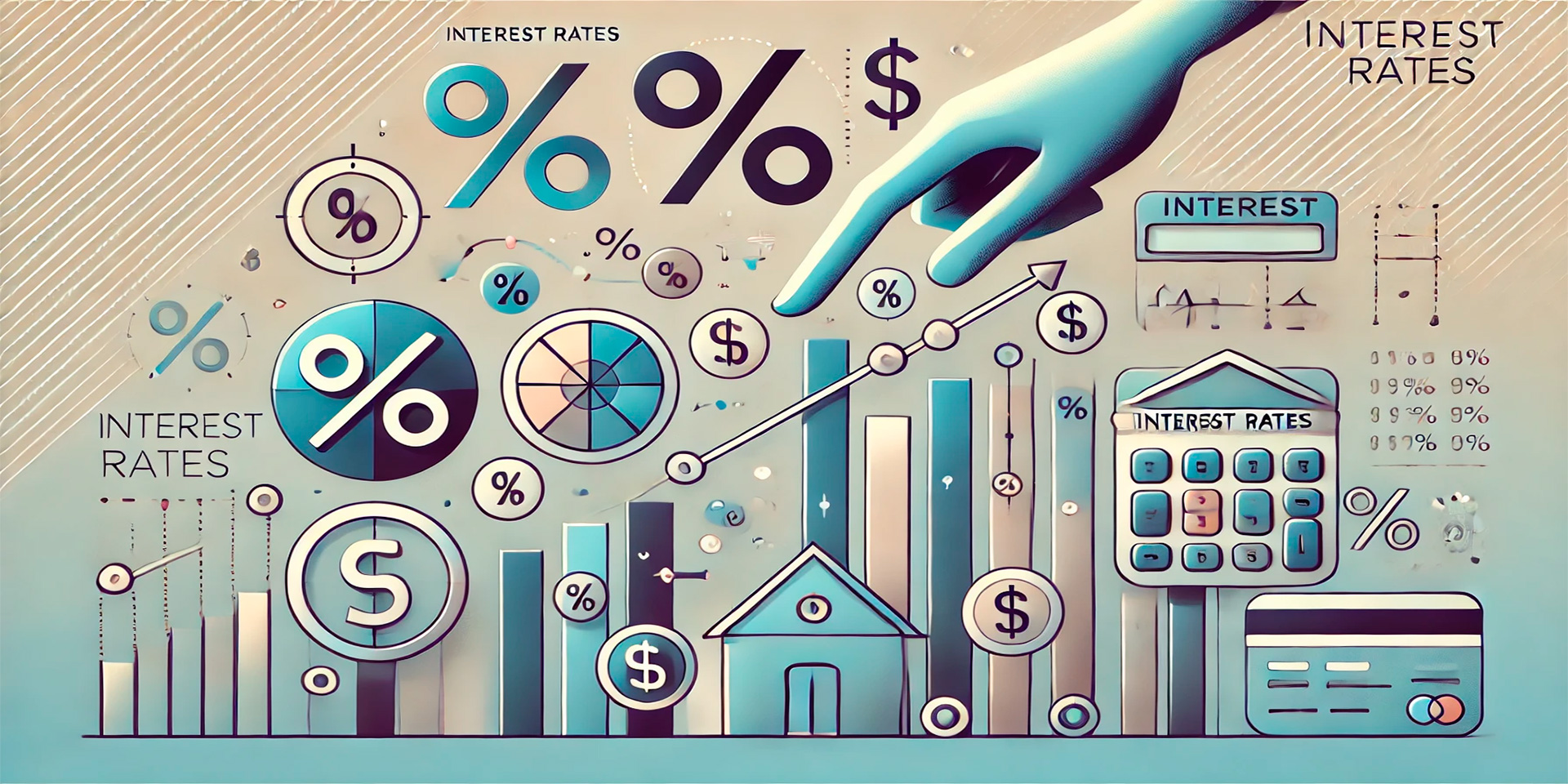Interest rates play a crucial role in shaping your financial decisions, particularly when it comes to loans and credit. Whether you’re taking out a mortgage, an auto loan, or applying for a credit card, the interest rate you receive directly impacts how much you’ll pay over time. Understanding how interest rates work and how they are determined can help you make smarter financial choices, potentially saving you thousands of dollars in the long run.
Interest rates are essentially the cost of borrowing money. When you take out a loan or use a credit card, the lender charges you a percentage of the amount borrowed as interest. This interest is the lender’s profit for providing you with credit, and it compensates them for the risk of lending you money. The lower your interest rate, the less you’ll pay in interest charges, making it easier to manage your debt and maintain financial stability.
How Interest Rates Are Determined
Several factors influence the interest rates offered to you, including your credit history, the type of loan, and the broader economic environment. Lenders assess your creditworthiness to determine the risk of lending to you, which directly affects the interest rate they offer. A strong credit history typically results in lower interest rates because you are seen as a lower-risk borrower.
The type of loan also affects the interest rate. Secured loans, such as mortgages or auto loans, often have lower interest rates compared to unsecured loans like personal loans or credit cards. This is because secured loans are backed by collateral, reducing the lender’s risk.
Economic factors, such as inflation, the Federal Reserve’s interest rate policies, and overall market conditions, also play a role in determining interest rates. During periods of economic growth, interest rates may rise as lenders seek to capitalize on increased demand for credit. Conversely, during economic downturns, rates may be lowered to encourage borrowing and stimulate the economy.

The Impact of Interest Rates on Loans
Interest rates significantly affect the total cost of your loans. A lower interest rate reduces your monthly payments and the total amount of interest paid over the life of the loan. For example, with a mortgage, even a slight difference in the interest rate can save you thousands of dollars over a 30-year term.
For auto loans, the interest rate determines how much you’ll pay each month for your vehicle. A lower rate makes the loan more affordable, while a higher rate increases your monthly payment and the overall cost of the car. When shopping for an auto loan, it’s crucial to compare interest rates from different lenders to secure the best deal.
Interest rates also influence your ability to manage debt. High-interest rates on credit cards can quickly lead to mounting balances, making it difficult to pay off your debt. By understanding how interest rates work, you can make informed decisions about borrowing, avoid excessive debt, and maintain better control over your finances.
Strategies for Securing the Best Interest Rates
Securing the best interest rates requires careful planning and attention to your financial health. Here are some strategies to help you obtain favorable rates on your loans and credit:
Build and Maintain a Strong Credit Score: Your credit score is one of the most important factors in determining your interest rates. Paying your bills on time, reducing your debt, and avoiding new credit inquiries can help improve your credit score, making you eligible for lower interest rates.
Shop Around for the Best Rates: Don’t settle for the first loan offer you receive. Take the time to compare interest rates from multiple lenders, including banks, credit unions, and online lenders. This comparison can help you find the best rate available for your financial situation.
Consider a Shorter Loan Term: Shorter loan terms typically come with lower interest rates because the lender’s risk is reduced. While this means higher monthly payments, it also reduces the total interest paid over the life of the loan, saving you money in the long run.
Make a Larger Down Payment: For secured loans like mortgages and auto loans, a larger down payment reduces the amount you need to borrow, which can result in a lower interest rate. It also reduces the lender’s risk, making them more likely to offer favorable terms.
Refinance Existing Loans: If interest rates have dropped since you took out your loan, refinancing can help you secure a lower rate and reduce your monthly payments. This can be particularly beneficial for mortgages and auto loans, where even a small decrease in the interest rate can lead to significant savings.

The Role of Interest Rates in Credit Decisions
Interest rates are not only a crucial factor in loan decisions but also play a significant role in your overall credit strategy. When using credit cards, for instance, the interest rate (often referred to as the Annual Percentage Rate or APR) determines how much you’ll pay if you carry a balance from month to month. High-interest rates can lead to rapidly increasing debt, making it harder to pay off your balance.
Understanding the impact of interest rates on your credit decisions can help you manage your debt more effectively. If you’re carrying a balance on a high-interest credit card, consider transferring it to a card with a lower interest rate or paying it off as quickly as possible to minimize interest charges. Additionally, avoid taking on new debt with high interest rates unless absolutely necessary, as this can strain your finances and make it difficult to achieve your financial goals.
Long-Term Considerations for Interest Rates
Interest rates can fluctuate over time, influenced by changes in the economy and monetary policy. It’s important to stay informed about current interest rates and be aware of how they may affect your loans and credit. For example, if you have a variable-rate mortgage or loan, your payments may increase if interest rates rise. Planning for these changes can help you avoid financial difficulties.
In the long term, maintaining a strong credit history and managing your debt effectively are key to securing the best interest rates. By understanding how interest rates work and implementing strategies to lower them, you can reduce the cost of borrowing, improve your financial stability, and achieve your financial goals more easily.
Conclusion
Interest rates are a powerful factor in your financial life, influencing everything from the cost of loans to your ability to manage debt. By understanding how interest rates work and how they are determined, you can make informed decisions that help you secure the best possible rates for your loans and credit. Whether you’re buying a home, financing a car, or managing credit card debt, taking steps to improve your credit and shop around for the best rates can save you money and enhance your financial well-being. With careful planning and smart financial management, you can navigate the complexities of interest rates and make them work to your advantage.

